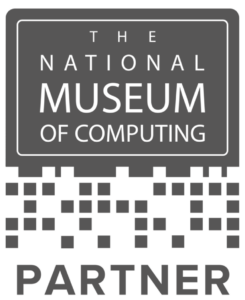Many IT teams are working ‘flat out’ just to keep the infrastructure running and, even with a state-of-the-art ITSM implementation, still can’t get beyond the basic processes of incident, request, problem, and change management. A lack of ownership, discipline, understanding, or ‘care’ means IT service can still seem pretty poor for the customers.
Research shows that many unsatisfactory breaks in productivity are not even reported for resolution. If the impression of IT or the Service Desk is that they are incompetent and unresponsive, the chances are the users will perform their own reboot and fix the issue themselves – whilst IT remains none the wiser of the issue.
Isn’t that why we have SLAs?
For many years the Service Level Agreement has played a key role in ensuring that IT delivers the expected level of service. According to ITIL, an SLA is:
“An agreement between an IT service provider and a customer. The SLA describes the IT service, documents service level targets, and specifies the responsibilities of the IT service provider and the customer. A single SLA may cover multiple IT services or multiple customers”.
Essentially, an SLA is an understanding between the IT service provider and the customer regarding the performance targets associated with a service, and there are various ways of managing and measuring this performance. According to the VTT Technical Research Centre of Finland, an SLA can be characterised on the basis of:
- A certain set of Key Performance Indicators (KPIs) of a service. The average values of these KPIs are estimated over a period of time or on the basis of dependability metrics such as the Mean Time To Fix (MTTF) or the Mean Time To Repair (MTTR).
- A method of measuring these KPIs, from the perspective of the customer, the provider, or both.
- The penalties that can result if any violations of the SLA occur on either side, for example service refunds or fines.
A significant shift is currently underway as the IT service industry becomes more usercentric. This means that, while delivering a service to the customer remains the most important task of an IT service provider, it has become equally important to look after the customer’s experience while they receive this service in order to maintain loyalty and growth.
The Experience Level Agreement (XLA)
An XLA is a specially designed SLA which also factors in the quality of experience the customer will be guaranteed while using the provider’s services. The parameters of these quality expectations must be clearly determined, measurable, and relatable to the customer.
A customer expects reliability and proper execution of service when they pay for it. IT service providers tend to overlook these two aspects that determine the quality of the service. As a result, the customer’s experience can be inconsistent at best.
XLAs are therefore ideal for conveying the kind of experience a customer can look forward to while using the services of the provider. Other benefits of this type of agreement include:
- Competitive edge: Service providers who drop their prices below the market average would admit to unprofitability in the long run. Instead, providing an experience guarantee can offer added benefit over your competition. Similarly, as research has shown (International Conference on Network and Service Management, 2013), customers are more likely to pay a higher amount for a service provided the quality of experience is high.
- Measuring important aspects of your business: XLAs can help provide a whole range of additional metrics and measures, such as wasted salaries, success factors for migration projects, lifespan and performance of certain types of hardware, and even the number of employees who have disabled their anti-virus or malware software, creating a breach of policy and security risk for the organisation.
- Increased customer loyalty: The logic is simple. If you keep a customer happy (by delivering great service as well as great experience), they are bound to stay loyal. They would return for more business in the future. Alternatively, it takes just one bad experience for the customer to lose faith. As a result, they will move to your competition.
Time to move from SLA To XLA
What if you could see things differently? How about finding a way of collecting information from every connected endpoint on the network? Or sending real-time performance information to an engine that feeds a dashboard showing the real health of the IT estate? What if you had a tool that could overlay all the process functionality in your chosen ITSM tool? Imagine collating realtime, leading indicators and analytics about the performance of IT and the customer’s ‘real’ experience?
Surely this would be a step forward for service maturity, giving better indicators than monthly management reports. This is the start of the next big thing, where Experience Level Agreements (XLAs) are given priority over Service Level Agreements (SLAs).

Neil Keating
Neil Keating is Co-Founder and Chief Experience Officer at Bright Horse, helping organisations gain improved productivity, profits and customer loyalty through, improving their employee and customer experience of IT services.


